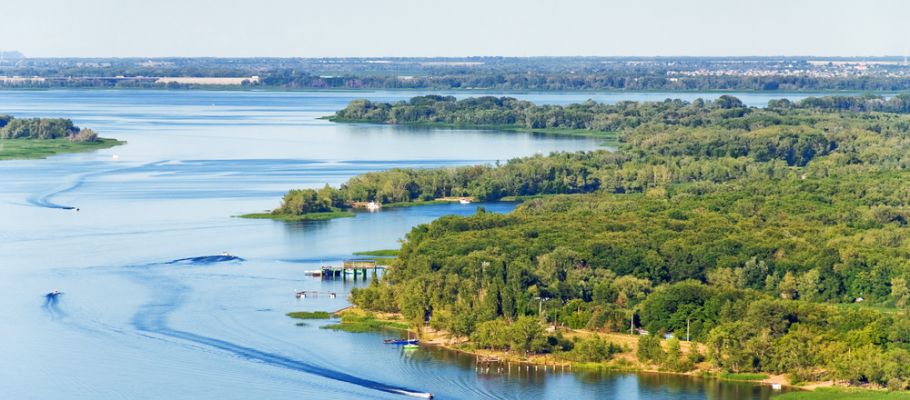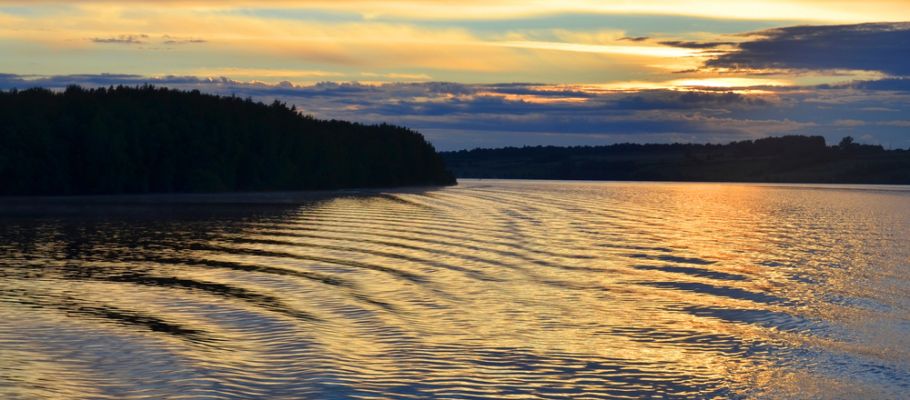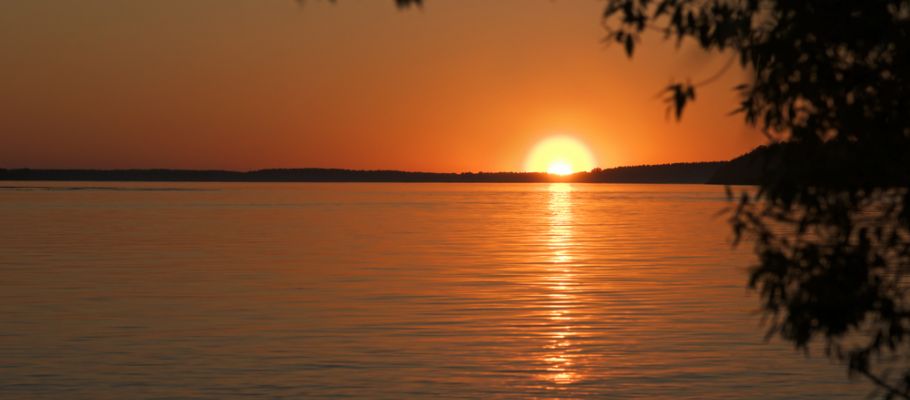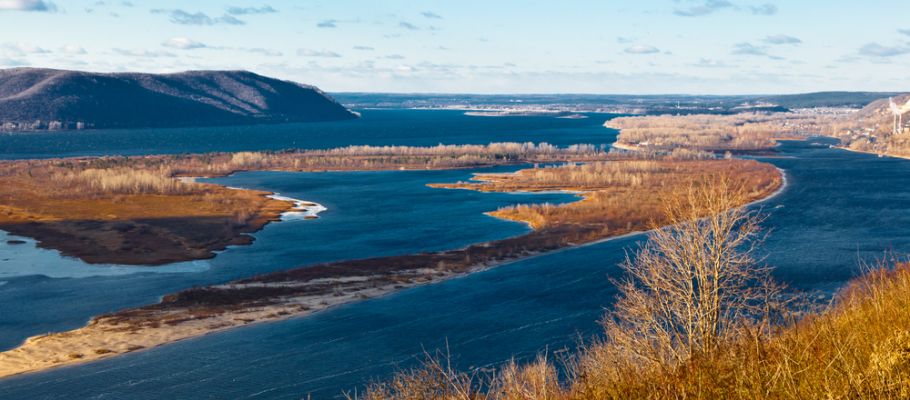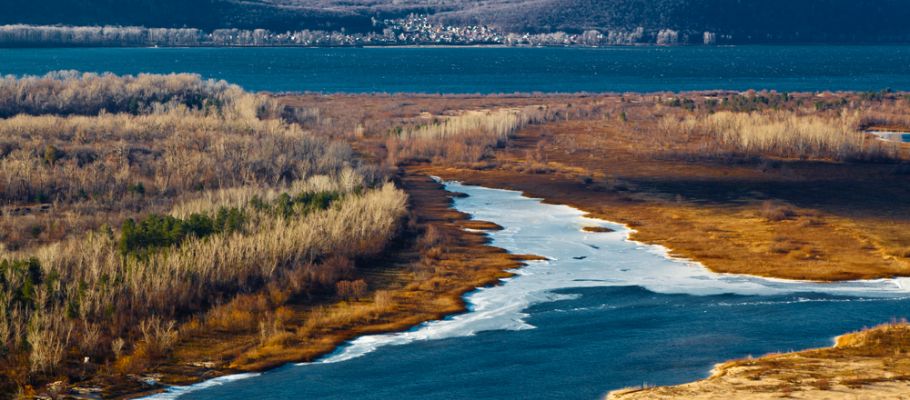The Volga River is a river located in Russia and belonging to the closed basin of the Caspian Sea. The source of the river starts in the Valdai Hills, which begin at an altitude of 738 feet (225 m). The river meanders through Russia until it empties into the Caspian Sea. The altitude at this point is 92 feet (28 m) below seal level.
The river has cultural significance to Russia. It is often noted in literature and folk tales as Mother Volga.
The Volga River was declared one of the Seven Natural Wonders of Russia on June 11, 2014. Visitors and potential travelers should discover and learn more about what makes the Volga River one of the Seven Natural Wonders of Russia.
What makes the Volga River a natural wonder of Russia?
Statistically speaking, the Volga River is the longest river in Europe extending 2,294 miles (3,692 km) across Russia. It is also Europe’s largest river based on watershed and discharge accounting for 284,636 cubic ft/s (8,060 cu m/s). The Volga River and the accompanying tributaries collectively extend across 521,238 square miles (1,350,000 sq km).
Aesthetically speaking, the Volga River is the only place in Russia that features pelicans, flamingos and lotuses. One of the amazing features of a river this size and volume is that it freezes three months of the year.
Eleven of Russia’s largest cities are located along or near the Volga River. The capital Moscow is one of the eleven with other ten including the following:
-
- Astrakhan
- Volgograd
- Saratov
- Samara
- Kazan
- Ulyanovsk
- Nizhny Novgorod
- Yaroslavl
- Tver
The river provides water and supports some of the largest reservoirs in the world. It is an iconic traditional and cultural symbol for the country and is referred to as the national river of Russia.
What are the best ways to see and experience the Volga River?
There are many ways to see and experience the Volga River. The best ways depend on what your primary interests are. There are numerous overlooks and scenic views of the river and surrounding terrain. It is easy to capture great pictures of the river and neighboring mountains.
Outdoor activities like fishing and boating are possible adventures. You can even take river cruises along the way. More adventurous explorers can get on canoes or kayaks to navigate the waters and mountainous shorelines. The cruises provide one of the best experiences, which can be a short as 10 hours up to three days.
It is also possible to just leverage the Volga River for relaxation. There are sandy beaches where you can sunbathe or take dips in the water.
What is the Volga River weather like?
The weather of the Volga River fluctuates as you move from the north to the south, with warmer temperatures coming the further south you move. The northern part of the river range from 19oF (-7oC) to 6o F (-14oC) in the winter months, to summer temperatures ranging range from 62oF (17oC) to 68o F (20oC).
The southern area of the river experiences temperatures ranging range from 19oF (-7oC) to 77o F (25oC). The northern part of the river begins to freeze towards the beginning of December and will remain that way until early to mid-March.
When is the best time to visit the Volga River?
The summer months of June through September are the best times to experience the Volga River. It is during these months that the majority of activities and encounters with the river take place. Boating, sunbathing, cruising, fishing, kayaking and more are all best during these months.
How do you get to the Volga River
With 11 large Russian cities being located on the Volga River, it is easy to access. Moscow is probably the most notable and popular tourist destination and the city is located on the Volga River. This makes access to the Volga River easy. You can follow the river in a car and leverage multiple scenic overlooks and vistas.
Photography Tips for capturing the Volga River
There are no specific insights or tips for photography of the Volga River at this time. Tips and insights will be added as experienced or discovered. If you are a photographer and have insights to share for future photographers visiting the Volga River, please submit them to Seven Wonders through the Contact Page.
